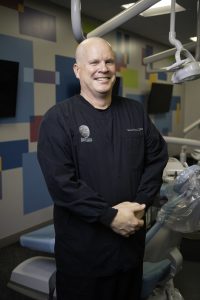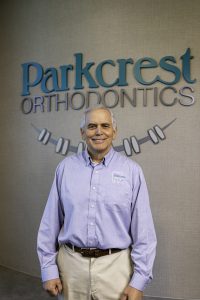When you get braces, it takes time to get used to how they feel. There will be many small adjustments to get used to throughout the process as well, such as rubber band and bracket adjustments. Dr. Harrison works with each client to help them get used to the orthodontic changes that occur during the process, and rubber bands are a big part of that.
Read on in today’s blog from Dr. Harrison to learn more about rubber bands and their role in your orthodontic care.
What Do Rubber Bands Do?
Depending on your situation, you might not need rubber bands on your braces, particularly in the beginning. However, many people with braces will need to utilize rubber bands at some point in the process. While the brackets and bands work to adjust the teeth themselves, interarch rubber bands are used to adjust your bite and jaw position. Interarch rubber bands connect between hooks on your top and bottom brackets. If you need adjustment with your bite, Dr. Harrison will likely use these rubber bands.
Do I Need Rubber Bands?
Ultimately, this comes down to the advice of your orthodontist. If you have an issue with your jaw or your bite, odds are that you will need rubber bands at some point. While braces are used to adjust your teeth and their position, your bite is just as important for the orthodontic process. If you are given interarch rubber bands, it’s critical that you wear them every day so that your jaw and bite can adjust accordingly.
How Long Do I Need To Wear Rubber Bands?
Again, that depends on the state of your jaw and bite. If you have a severe overbite or underbite, you might be required to wear interarch rubber bands for as long as you have braces. However, if your jaw and bite issues are less severe, you might only have to wear them for a few weeks or months. And if you don’t have any jaw or bite issues, you might not have to wear interarch rubber bands at all.
Contact Dr. Harrison For More Rubber Band Tips
If you have braces and you need to utilize interarch rubber bands to correct a bite or jaw issue, Dr. Harrison wants to help you through the process. For more information, give Parkcrest Dental a call at (417) 887-1220 or contact us online today.





